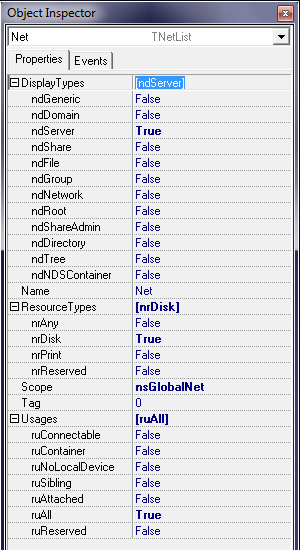Some API functions which I'm calling require some DWORD parameters. Some of those parameters allow multiple values, such as...
I'm trying to wrap this into a component with some properties, such as...
and somehow, that needs to be converted to...
Any ideas?
JD Solutions
Code:
CONST_ONE or CONST_TWO or CONST_THREEI'm trying to wrap this into a component with some properties, such as...
Code:
type
TCon = (cOne, cTwo, cThree);
TCons = set of TCon;
...
procedure DoSomething;
var
C: TCons;
begin
...
C:= [cOne, cThree];
...
end;and somehow, that needs to be converted to...
Code:
CONST_ONE or CONST_THREEAny ideas?
JD Solutions

